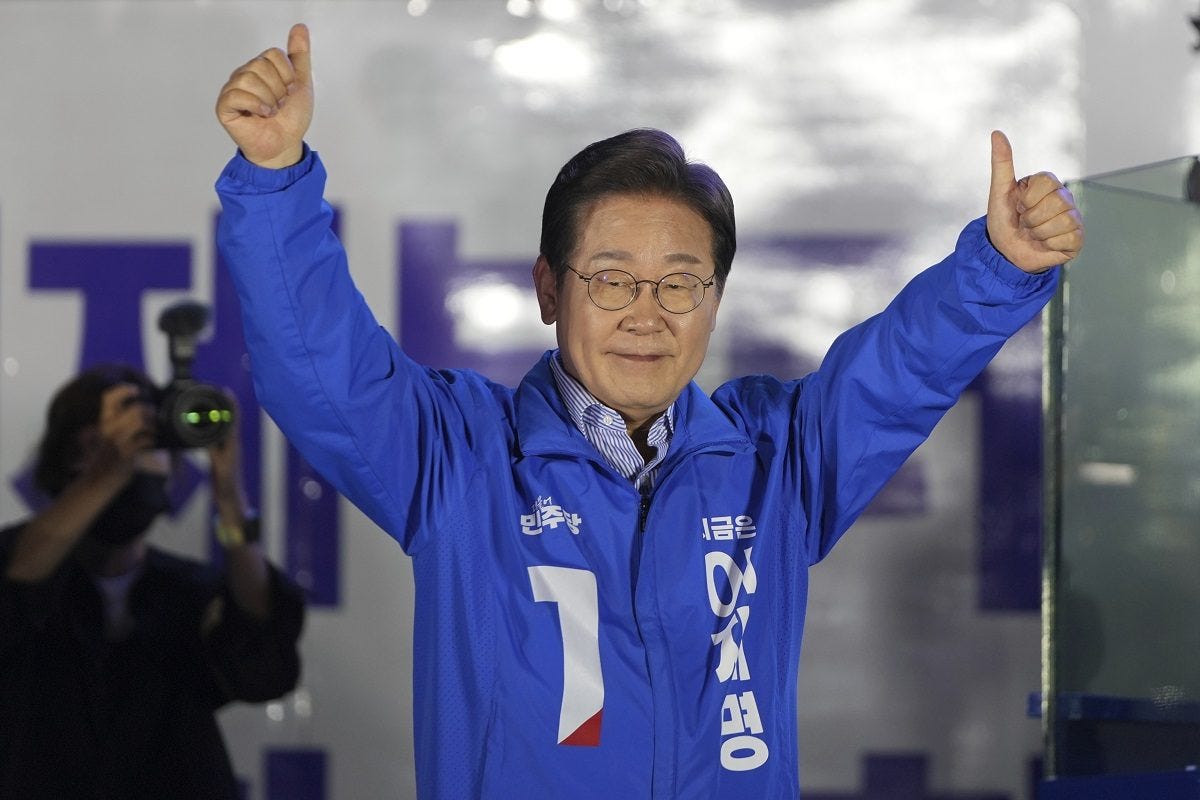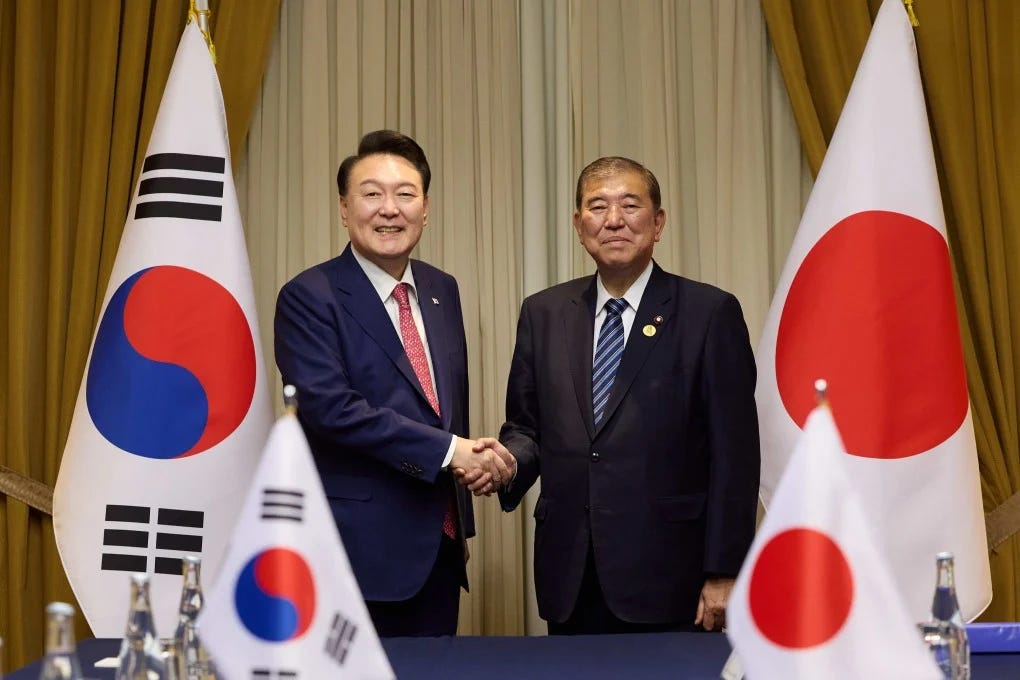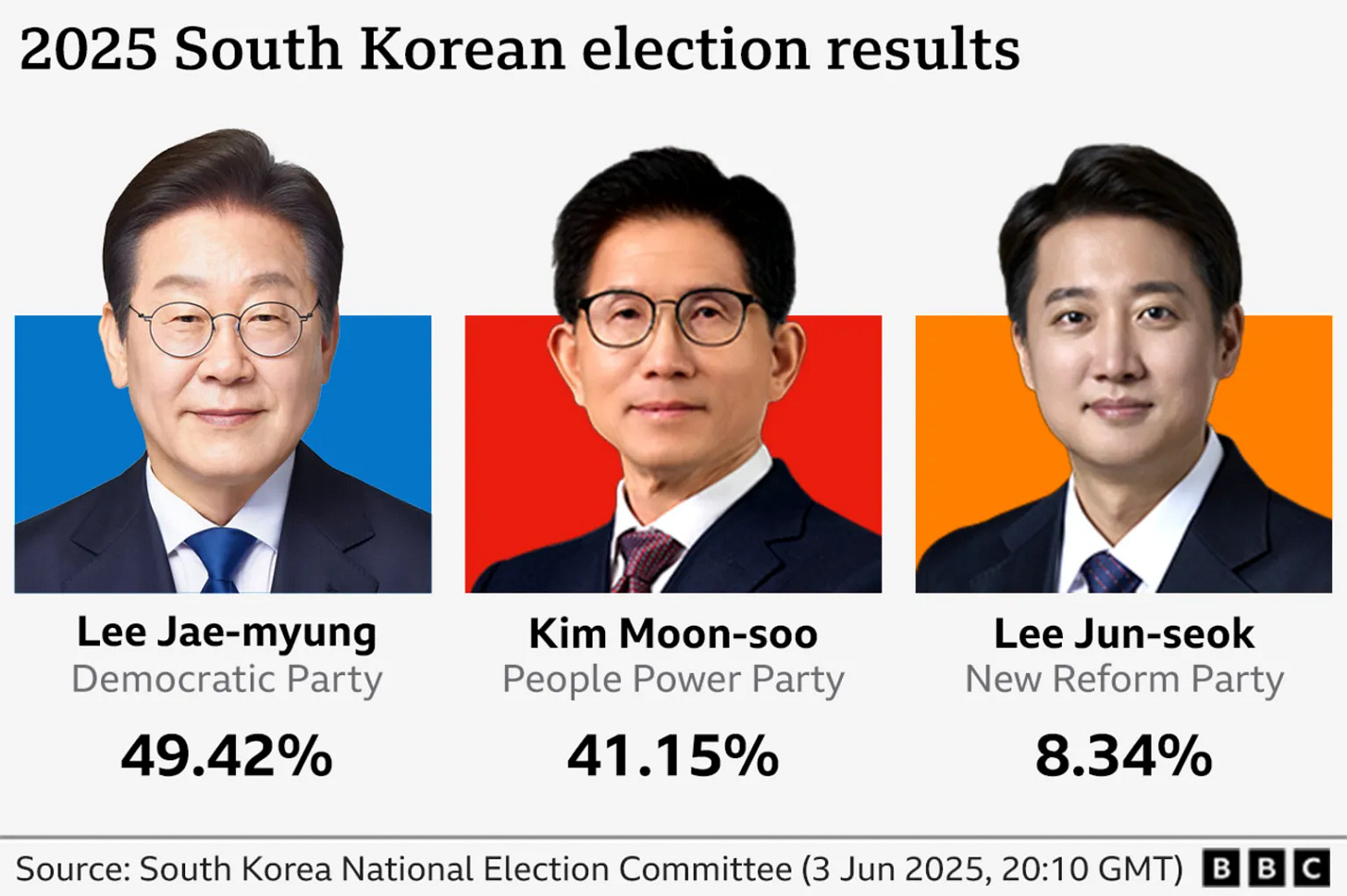South Korea's New President Could Be Bad for Japan — Or Maybe Not
Lee Jae-myung has a history of anti-Japanese rhetoric, but he's a pragmatist above all else.

Foreign Perspectives is a mix of free and paid content. Certain articles such as these are exclusively for paid subscribers. If you enjoy the work I do, please consider upgrading to a monthly or yearly subscription. Your support is greatly appreciated and ensures that this Substack can continue to deliver high quality pieces.
With everything going on in the world, you would be forgiven for not being aware that South Korea held a presidential election last week. If you did happen to catch the news, you were probably one of millions rushing to Google to learn who newly-inaugurated President Lee Jae-myung is. Like Japan, what goes on in the Republic of Korea on a domestic level is usually not something that most foreigners pay attention to. There are surprisingly few analysts out there worth a damn producing high quality analysis on Korean politics in English, most likely because it’s similarly a rather esoteric topic that doesn’t capture headlines as much as Ukraine or the Middle East.
I’ll use this opportunity to shout out the Substack Junotane published by my colleague Jeffery Robertson. He has over 25 years of experience researching topics related to the Korean Peninsula and regularly puts out high quality articles which provide important insights that more people should read. I also recommend NK News and its sister site Korea Pro, outlets I’ve previously contributed to that feature the work of some of the best Korea scholars in the world.
There was no new column on Foreign Perspectives last week due to some graduate school commitments on my end (I recently became a TA), but also because I rushed to put out some timely analysis for The Spectator within 24 hours of Lee Jae-myung’s election victory. You can check out the article here and a paywall-free link to it here. Due to the short timeframe of the commission and the audience of The Spectator, my piece only focused on the implications of Lee’s administration for the United States and North Korea. I wasn’t able to discuss Japan, so that’s what this follow-up is intended to cover.
In short, things at first glance do not look good. For all of his faults, the outgoing Yoon Suk-yeol was one of the most pro-Japan presidents South Korea ever had and his administration took active steps to rebuild ties with this country. The decisions of the Moon Jae-in administration resulted in what was largely considered to be the nadir of Japan-ROK relations. Seoul’s Democrats chose to reopen old wounds with Tokyo over historical issues that previous government declared resolved. I won’t get into war crimes discourse here as it’s really a topic worthy of its own piece, but the Japanese government has repeatedly apologized for its atrocities and given out multiple forms of reparations to surviving victims.

For those not in the know, the typical pattern is that conservative South Korean administrations will be more pro-Japan and less likely to use historical issues as a political cudgel, while liberal governments will do the opposite. There are numerous reasons for Korean leftists resorting to “Japan-bashing,” but more often than not it’s a cynical ploy for clout with a specific base at home and a cheap negotiating tactic abroad. This is why despite decades of conciliatory statements, apologies, reparations, and economic aid, there are always politicians in Seoul who think that slamming Tokyo will benefit them.



